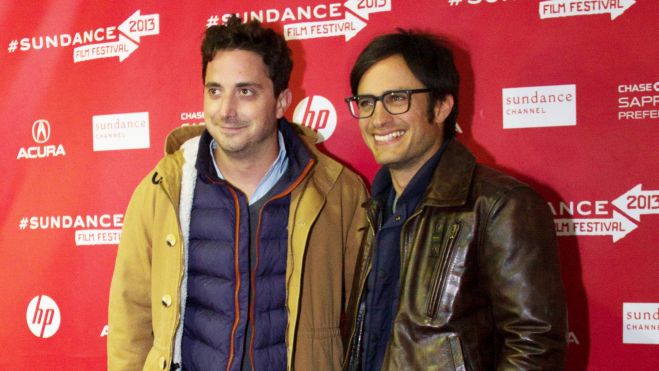Gael García Bernal talked politics to audience members after the first Sundance Film Festival screening of “No.” In the film, recently nominated for an Oscar, the Mexican actor plays an advertising prodigy who helped oust Chilean President Augusto Pinochet in 1988.
After 15 years of dictatorship and much international pressure, Pinochet’s regime finally gave Chile a choice: “Yes,” keep the president in power, or “No,” elect a new leader.
Despite tough odds, García Bernal’s character, René Saavedra, helped direct an innovative and daring television advertising campaign that inspired the majority of a country —whose violent political past was still fresh in the minds of many— to make a choice against the dictatorship and vote “No.”
After the screening of the film, García Bernal answered some of the audience’s questions and quickly dismissed one inquiring what Chileans thought of his accent — there are much bigger issues for Chileans to react on, he said.
“This film talks about getting rid of a dictator or an oppressing government with democratic means,” said García Bernal to the audience, “it’s about a questioning. It’s a strong questioning.”
García Bernal went on to explain that despite one’s political or cultural background, everyone wants the same thing: “This experience, being able to talk freely without no problem. I mean, we can express our opinions and stuff without that kind of single discourse, single narrative, or bigotry.”
The film’s director, Pablo Larraín, also commented on the impact the film has had on its audiences.
“It’s fascinating how people will just connect with the film throughout their own political reality even though this happened a long time ago in South America,” said Larraín, who is Chilean.
“Democracy is there to be in its own nature,” García Bernal said. “It is there to be perfected every day and to be made even better —or let’s say less worse in some cases.”
García Bernal went on to say that he hopes that in addition to being an entertaining film, “No” will inspire people all over to question their political reality.
“It’s really been a great kind of political project as well. It’s personal but it’s political. It’s engaging. It’s interesting for us to be in this situation and to have this conversation,” said García Bernal.
“No” is one of seven films which make up this year’s prestigious “Spotlight” category. It’s also been nominated for the 85th Academy Award for Best Foreign Language Film.
“No” already opened in Chile and Mexico last year and will hit the big screen in U.S. theaters this February. By Angela Santos [Fox]


